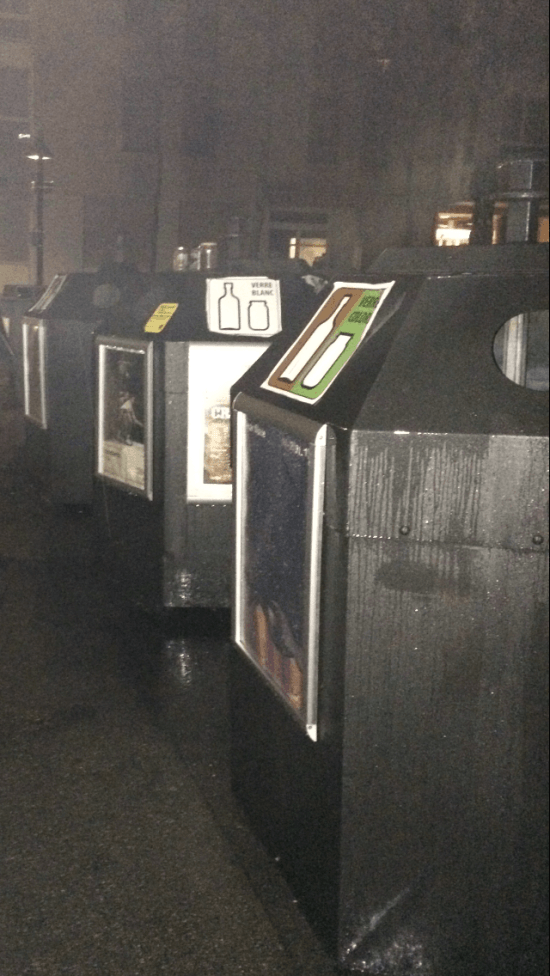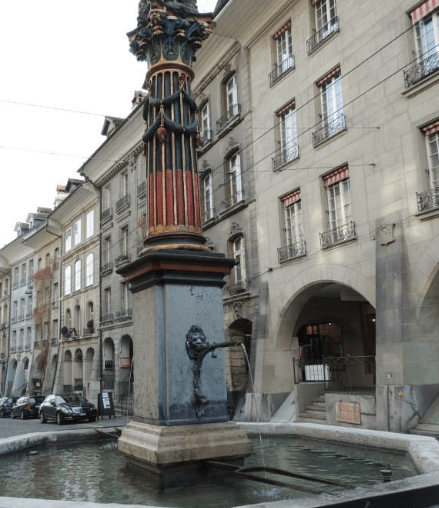Premed Perspective From Switzerland: Part III
Bonjour de Genève! There are obviously quite a few differences between Switzerland and the United States (#1: way better chocolate, and you can get it for only $0.50!) but, this post analyzes the differences between what I’ve seen in Geneva and America from a public health angle.
3 Positive Reflections on Public Health in Geneva
- People walk or take public transport everywhere.
- The cars have less exhaust, which means less pollution, cleaner air, and more incentive to walk outside. (Plus, it’s gorgeous.)
- Wide, level, and well-maintained sidewalks also make Geneva an inviting place to walk. Since it’s so safe, even when it’s dark outside, making the decision to walk home after going out is an easy one.
- There are very few advertisements for food, and the ones that do exist are not directed at children.
- Use of public transportation is incentivized by things like “track 7 passes” and “1/2 off passes”. These passes allow you to travel for free on any Swiss train between 7 p.m. and 5 a.m., and your tickets are half off at all other times. In other words, my ticket back from Bern (the capital of Switzerland) this weekend was absolutely free, because we got on the 7:04 pm train.
- Geneva is one of the most green countries in the world–and it’s easy for the population to participate.
- In Switzerland, there’s an unwritten rule that you can drink from any source of water you see. This includes everything from tap water to the water flowing in the decorative fountains all around town!
- Garbage bags are left outside, lending more transparency to waste disposal: people can see how much they are wasting.
- Geneva is literally green. While Geneva’s narrow alleys, mixed-use buildings, and multi-storied residential complexes make it quite urban, it’s peppered with so many community parks that residents don’t feel a lack of green space. In fact, 1/4 of the city is covered in public parks that are open to everyone, making these parks the social hub of a community with great mental health benefits.
- There are trash cans on many street corners, and government employees and zamboni-like machines sweep the streets regularly. These are expensive social services, but because Geneva operates as a direct democracy, the public is very well informed and understands that by voting to raise taxes, they can have a better living environment.
- Recycling here is a beautiful thing. There are separate cans for PET plastic, aluminum, and glass. All trash is burned–there are no landfills. Because the public is generally knowledgeable about the relationship between taxes and social services, they are incentivized to recycle because if they don’t recycle, more trash needs to be burned (which is significantly more expensive), and their taxes will go up.
- Just like in Berkeley and San Francisco, you have to pay for grocery bags. However, while it’s something like $0.10 in the Bay, it costs 2 francs (~ $2.3) in Geneva. There’s no “Oops I forgot my bag at home” in Geneva–not unless I want to give up some groceries (or 4 chocolate bars).
- Everyone and everything is quiet. The tram is quiet (so pedestrians have to be extra alert!), the fire alarms are quiet (ditto here), and there’s rarely any honking or “normal” city noise, which means less noise pollution.
- Completely different (and healthier) food culture
- Smaller portion sizes, less sugar, and less salt.
- No corn syrup.
- Since Genevans grocery shop more often (every other day), the supermarkets are always stocked with fresh vegetables and fruits. Consequently, there are also less canned foods and foods with preservatives/additives–long shelf life isn’t needed!
- People in America, I’ve realized, are always snacking. If I’m not eating a meal, I’m either munching on chocolate-covered almonds while studying, drinking tea while walking to class, or eating cookies in class itself. In Geneva, eating food in class is considered disrespectful, so that was a habit I had to beat rather quickly. I’ve also noticed that Genevans don’t eat on the streets–no one is ever sipping coffee on the way to work, stuffing a pretzel in their mouth on the way to class, or even chewing gum. Each meal is appreciated and eaten while sitting down, preventing mindless munching and unnecessary food consumption.
- There’s a 2 hour lunch break. Students walk home to eat lunch with their family, which is not only beneficial socially and mentally (Swiss families are tight-knit), but also encourages consumption of homemade food and less possibility of eating out. Professionals, too, are not looked down upon for taking 2 hour lunch breaks–and it’s not an unpaid break! Furthermore, Switzerland still boasts one of the highest rates of worker productivity! This is something I think America should definitely try to consider or take points away from.
- The higher cost of eating out discourages eating out. (I’ve been here 7 days and I’ve eaten out 2 times, while at Berkeley it was hard for me to just cook one meal a day.)
- Cost of fast-food here is also expensive–a Big Mac at McDonalds costs $7! Naturally, this also discourages eating out.
- Unlike American pharmacies, Genevan pharmacies don’t sell junk food and non-essential products. While those products may be profitable for pharmacies, having them easily accessible everywhere only encourages mindless purchase of food and unhealthy food choices.
- A lot of American food have added vitamins or minerals–and companies are quick to tell you this. On the other hand, Genevans try to get the nutrition they need through the food they eat. By law they are required to fortify flour with vitamin B and folate, but I haven’t seen things like granola bars or cereal with an alphabet soup of vitamins.

Some of the many recycling cans on the streets. Geneva, Switzerland. Image Source: Lochan Shah
3 Negative Reflections on Public Health in Geneva
- Like any European city, smoking is quite common, i.e., there are clouds of smoke hanging around the doors of many buildings (especially at the University) that everyone has to walk past to get inside.
- Safety culture: for better or for worse, there is no hand-holding in Geneva or Switzerland as a whole. This means that you’re free to climb any mountain you want–but you better be careful, because there may not be a sign warning you that there’s a 20 foot deep, ice filled crevice 1 foot in front of you. Same goes with hiking off trail or sledding–there are no railings, signs, or “warnings”. Go at your own risk, have fun, and hopefully don’t die.
- There aren’t many gyms, and the ones that do exist are expensive. For people less outdoorsy, or less inclined to go running in 20 degree weather during the winter, it seems hard to find ways to stay active.
Of course, I’ve only been here a week, so my opinion might change over the course of the semester!
< Part II: Studying Abroad as a Premed: FAQ
Part IV: The Hidden Side of Private Actors in Global Health >
Featured Image (taken 1/17/2015 at Migros supermarket) Source: Lochan Shah.










